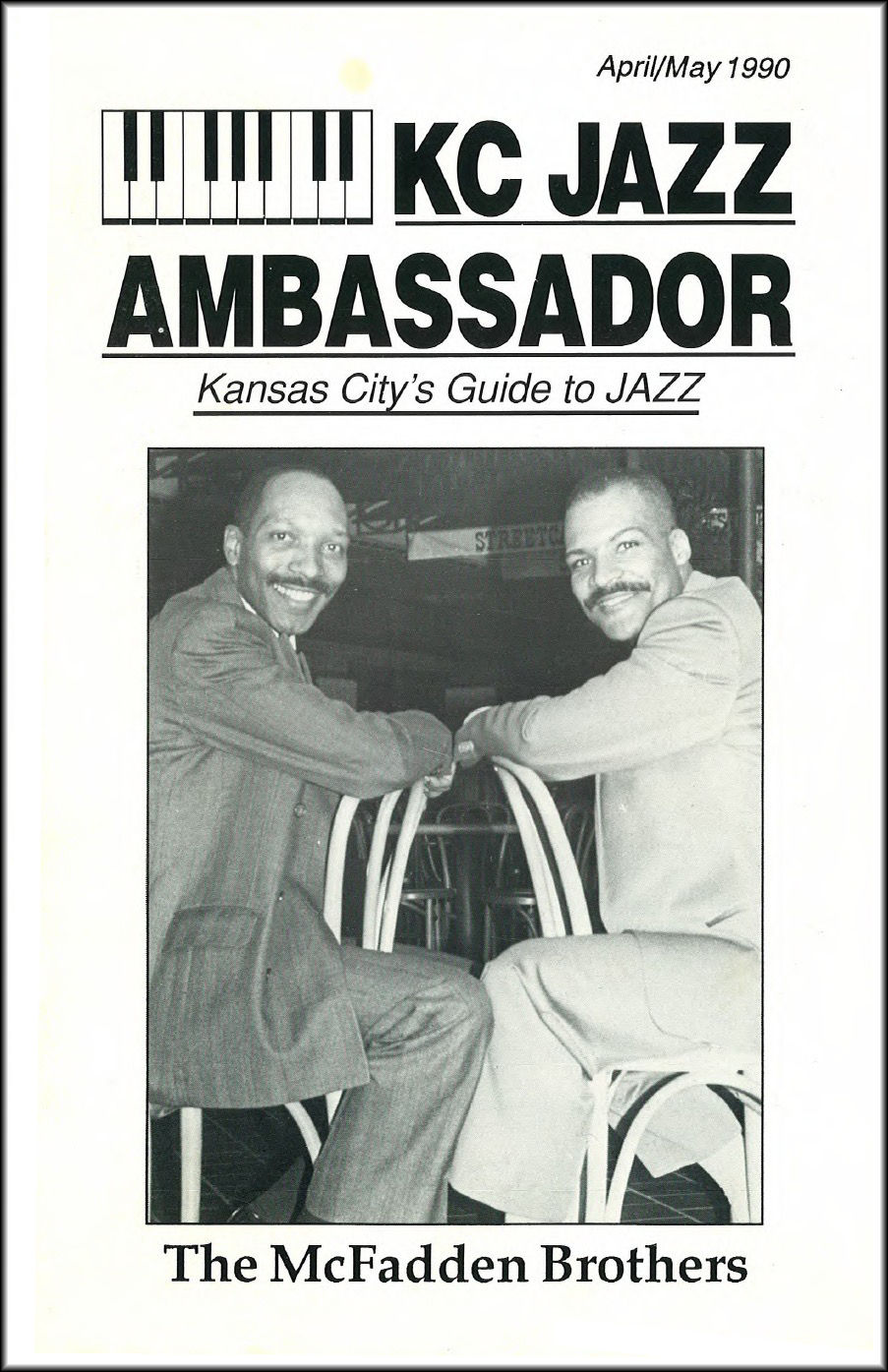A Tribute to Ronnie McFadden of the McFadden Brothers
- JAM
- Mar 11, 2023
- 3 min read

Lonnie and Ronnie McFadden, of Kansas City's McFadden Brothers, grew up at 29th and Euclid Avenue, on Kansas City's east side. They've been a tap-dancing duo for as long as any of us can remember—at least sixty or more years. But it wasn't until long after the artform went out of style that they made it their own brand in addition to their dancing, singing, and instrumental performances.
It was their repertoire, and it was truly a show to behold. The McFadden’s were often compared to the Nicholas Brothers—also siblings that performed in the 1930s through the 1950s.
Ronnie recalled the time they spent with their dad after their mom went to work. They played baseball with the neighborhood kids, listened to music and started tap-dancing. Their dad, Jimmy McFadden, was a professional tap dancer, from back in the day when tap-dancing was still popular.

Ronnie and Lonnie’s father learned to tap at a barbecue stand near 12th and Highland. His dad was part of a traveling tap dancing crew out of Kansas City called The Three Chocolate Drops. Years later Ronnie would later go on to perform with Count Basie, Jay McShann and other Kansas City Jazz greats. Ronnie had the physical stature of his dad. He was tall, muscular, slender, and appeared to glide across the stage with precision. His efforts were flawless.
The McFadden’s are born tap dancers—it is in their DNA. They learned a great deal of advanced tapping techniques from their father, as well as incorporating their own innovations such as the triple cramp roll, the double toe stand, the toe stand turn, nerve taps, and their patented acrobatic high leap. The audience eagerly awaited it.
My Father, Ben D. Kynard, who was a contemporary and fellow entertainer during Jimmy McFadden’s days, recalled Ronnie and Lonnie coming to the Mutual Musicians Union to hang out and take in all the music generated there, from several professional musicians that would gather and gig.

Ronnie and Lonnie would jam there playing their instruments and I am sure also doing a little tap. Both brothers recalled my father was both positive and encouraging to them observing their individual and collective talent as a future dynamic duo.
From a young age, they played gigs with their dad, even doing after-hours jamming at the Mutual Musicians Foundation. When they entered high school, tap dancing was on the way out. Soul and Funk was the preferred genre of the day.
These popular new groups controlled the radio airwaves and the entertainment shows, as it embraced a growing social movement in our nation that helped fuel it. So, in search of something new to replace tap-dancing, the brothers picked up their horns and started to dance, sing, and entertain.
Lonnie spent a few years touring with a local funk band called Clyde and & ‘em and Her.

This was the most popular local band in the 1970s in Kansas City, Missouri and also on the Kansas side. When they would play at organizations, clubs, and high schools the crowds were overwhelming. That’s how popular they were. Ronnie at that time, was too young to perform in these venues, but this did not stop his desire to be there with his brother one day. At this time, the McFadden’s did not tap. This was mainly a soul and funk band. But they had trouble getting gigs in the Kansas City venues where people paid enough at the door for the band to make money.
Once he got his chance, Ronnie would express his inner feelings through his outward extensions of his soul in the songs he played. He would move his lean torso and legs rhythmically, then he would move his sax from side to side then up and down. He would always conclude the song by emphasizing in the crescendo by raising his saxophone to the sky and belting out a series of high-pitched altissimo notes.

The McFadden Brothers toured wherever they could, including Japan. They spent four months at a time in Japan, their popularity in that country was hard-fought but eventually won. And it was all owing to the tap-dancing lessons from their dad that provided this solution. The McFadden Brothers rolled out their old proven tap-dancing moves and never looked back.
We lost Ronnie far too early—because the Lord wanted him in a much higher place. And as the saying goes, “A candle that burns twice as bright burns half as long.”
Ronnie was that candle that burned twice as bright during his wonderful lifetime. And we also know that one’s soul is like a never-ending river that keeps flowing without end. Ronnie will be deeply missed by the Kansas City Jazz Community, his wife and two children, his dear brother Lonnie, his sister, and several relatives, family, friends, and his adoring fans.
—Brett D. Kynard






Comments